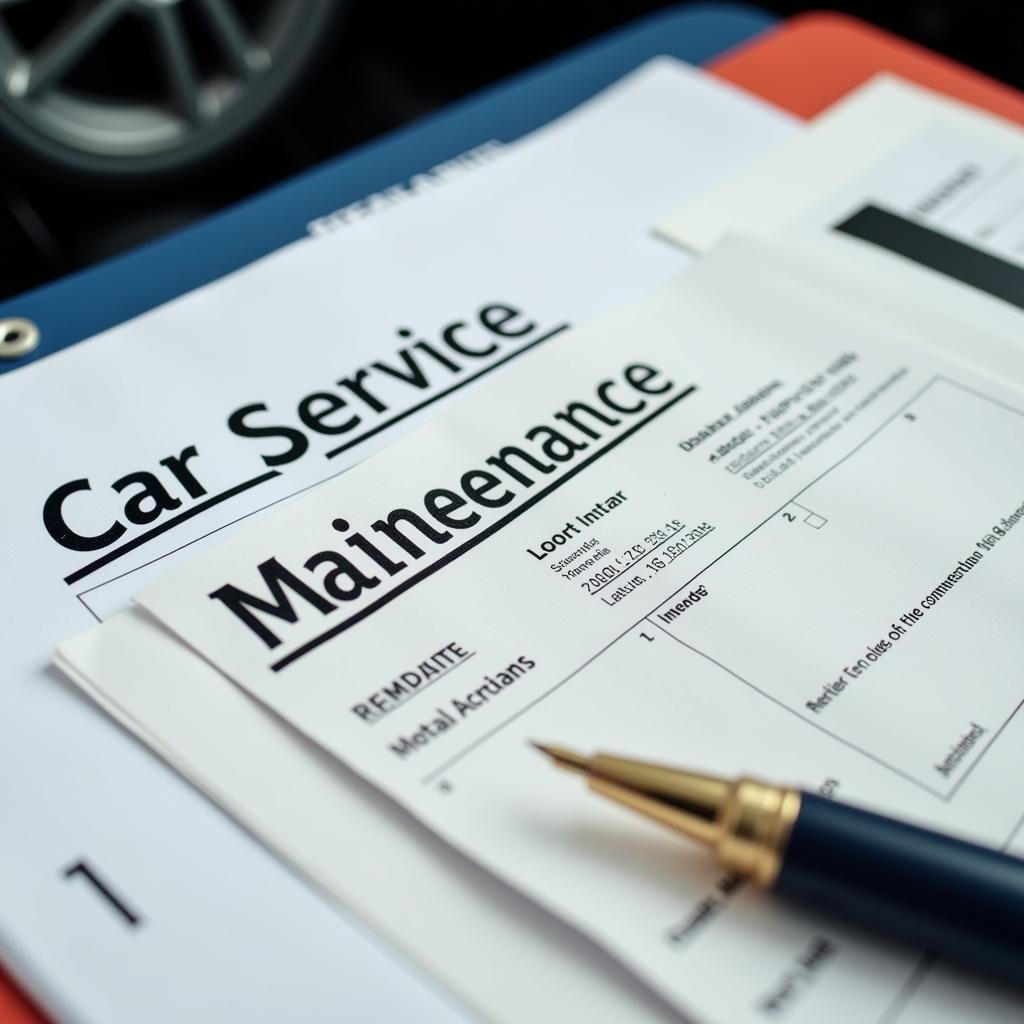When to Get Rid of Car Service Records: A Comprehensive Guide
Knowing When To Get Rid Of Car Service Records can be a bit of a head-scratcher. On one hand, they seem important, like little paper trails of your car’s life. On the other hand, who wants to be buried under a mountain of receipts? This guide will walk you through the why, when, and how of managing those service records, so you can confidently decide what to keep and what to toss.
Why Keep Car Service Records in the First Place?
Before we dive into the “when” of discarding records, let’s understand the “why” of keeping them:
- Proof of Maintenance: A well-documented service history can be a major selling point when it’s time to trade in or sell your car. It assures potential buyers that you’ve taken good care of the vehicle.
- Warranty Claims: If a warranty issue arises, having proof of regular maintenance can be crucial in getting your claim honored.
- Troubleshooting: Detailed service records can help mechanics quickly diagnose and fix problems, potentially saving you time and money.
- Tracking Expenses: Keeping tabs on your car maintenance costs can be helpful for budgeting and tax purposes.
 Organized Car Service Records
Organized Car Service Records
How Long Should You Keep Car Service Records?
The general rule of thumb is to keep car service records for at least three years. This timeframe covers the typical length of most manufacturer warranties and lemon laws.
However, there are some instances where holding onto records for a longer period is recommended:
- Major Repairs: Keep receipts for significant repairs, such as engine or transmission work, indefinitely. These records can be valuable if you experience recurring issues or decide to sell your car.
- Warranty Extensions: If you purchased an extended warranty, keep all service records for the duration of the coverage.
- Tax or Legal Purposes: In some cases, you may need to retain records for a longer period to comply with tax regulations or potential legal matters.
What Records Can You Safely Discard?
While it’s wise to err on the side of caution, you don’t need to keep every single piece of paper related to your car. Here’s what you can generally get rid of:
- Expired Warranty Information: Once a warranty has expired, you can discard the associated paperwork.
- Routine Maintenance Receipts: Receipts for oil changes, tire rotations, and other basic services can be discarded after three years, unless they relate to a specific warranty claim or ongoing issue.
- Estimates: You can usually discard repair estimates once the work has been completed and you have the final invoice.
- Duplicate Records: If you have multiple copies of the same receipt or invoice, keep one for your records and shred the rest.
Going Digital: The Modern Way to Manage Service Records
In today’s digital age, there’s no need to rely solely on paper records. Consider these digital solutions:
- Scanning and Storing: Scan important documents and store them securely in the cloud or on an external hard drive.
- Smartphone Apps: Several apps are designed specifically for managing car maintenance records, allowing you to track service history, set reminders, and store receipts digitally.
- Vehicle History Reports: Websites like Carfax and AutoCheck provide comprehensive vehicle history reports, often including service records obtained from dealerships and repair shops.
Making the Decision: Factors to Consider
Ultimately, the decision of when to get rid of car service records depends on your personal preferences and comfort level.
Consider these factors:
- Age and Value of Your Car: Older, less valuable cars may not require as much meticulous record-keeping.
- Frequency of Repairs: If your vehicle has a history of frequent repairs, holding onto records for a longer period might be beneficial.
- Storage Space: If physical space is limited, going digital can help you stay organized without cluttering your home.
Expert Insight
“While it’s tempting to declutter and toss those old service records, I always advise car owners to proceed with caution,” says John Smith, a seasoned automotive technician with over 20 years of experience. “You never know when a past repair might become relevant to a current issue. A detailed service history can be invaluable in diagnosing complex problems and ensuring you receive proper warranty coverage.”
Conclusion
Deciding when to get rid of car service records is a personal choice, but understanding the value they hold and implementing a system for managing them can save you time, money, and headaches down the road. Whether you choose to go paperless or maintain a physical file, being organized and informed empowers you as a car owner.

